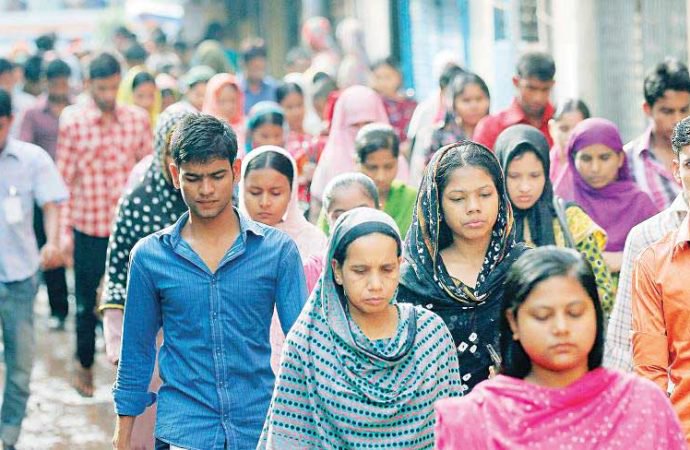Prime Minister Sheikh Hasina formally announced the country’s eligibility to be recognised as a developing nation on Saturday.
Bangladesh, for the first time in history, has fulfilled the eligibility criteria set by the United Nations to be recognized as a developing country, crossing over from the list of least developed countries (LDCs).
Prime Minister Sheikh Hasina formally announced the country’s eligibility to be recognised as a developing nation on Saturday, on the 98th birth anniversary of Father of the Nation Bangabandhu Sheikh Mujibur Rahman.
Bangladesh will now be able to apply to the UN for recognition as a developing country. It will receive the formal recognition in 2024 after being assessed by the United Nations Economic and Social Council (ECOSOC).
The ECOSOC will make the announcement by considering three aspects of the country – per capita Gross National Income, Human Resources Index and Economic Vulnerability Index. In the meantime, Bangladesh has to maintain its progress.
Planning Ministry sources said the United Nations Committee for Development Policy (CDP) creates indexes for countries every three years based on their per capita income and social issues.
Based on the indexes, the countries of the world are divided into three categories: least developing countries (LDCs), developing countries and advanced countries.
Bangladesh has reached the second phase after meeting the eligibility criteria of CDP – now it is a matter of time for the country to emerge from the LDC list to the list of developing countries.
Per capita income of $1,230 is the minimum requirement for transitioning into a developing nation, and Bangladesh’s income per capita currently stands at $1,274.
Bangladesh holds 72 points in the Human Resources Index, while the minimum requirement is 64 points.
For the UN recognition, Economic Vulnerability Index must be below 32 points, and Bangladesh’s current score is 25.5 points.
In July, 2015, Bangladesh transitioned from a low income to a lower-middle income country. This distinction, based on the per capita income of a country, is used by the World Bank.
Earlier, Commerce Minister Tofail Ahmed expressed his hopes that Bangladesh would become a developing country by 2021, a year in which it will celebrate 50 years of independence.
However, even if Bangladesh gets the recognition, the country has to seriously maintain the progress over the next 15 years. This will be a one-way process for Bangladesh. Bangladesh may not get back its previous title – even if it is a possibility – as countries which have over 75 million people cannot get the LDC title. Thus, Bangladesh has no scope for going back.
Recently, the International Monetary Fund (IMF) has predicted that the global economy will pace forward in 2018. Bangladesh will be able to take advantage of it if it makes adequate preparations.
Maintaining growth: What to do
Asked about what Bangladesh should do in order to maintain the progress and get the status of a developing nation, Prof Mostafizur Rahman, a fellow at the Centre for Policy Dialogue, a Dhaka -based think tank, said: “We need to focus on improving the efficiency and productivity of our technologies.
“Three million people are still living below the poverty line in Bangladesh. Our economy is still not fully industrialized. In this context, along with the diversification of export products, we will have to move towards a production economy from an economy which is dependent on situation.”
Prof Mostafizur, however, added: “Thus, we cannot solve all our problems merely through this recognition.”
The eminent researcher said: “We need to focus on improving our business environment, ports and infrastructural development so we can at least maintain right prices of goods in markets even if we do not get duty-free access. Besides, we need to be more efficient with our macroeconomics and ensure good governance.”
Bangladesh will enjoy the same trade facilities as LDCs do until 2024 even if it gets the recognition of “developing country” this year.
Source: Dhaka Tribune.


